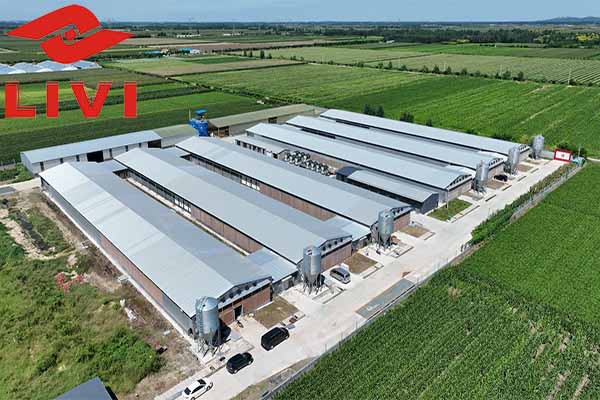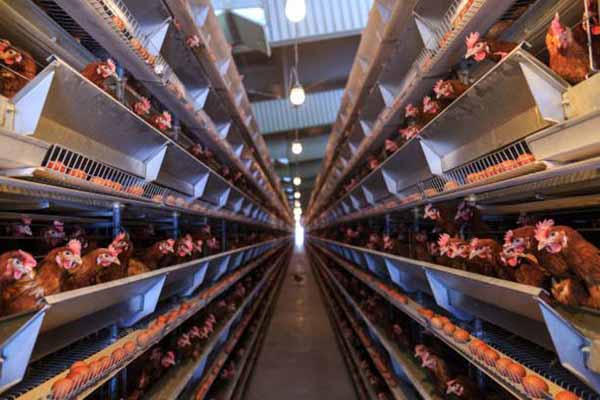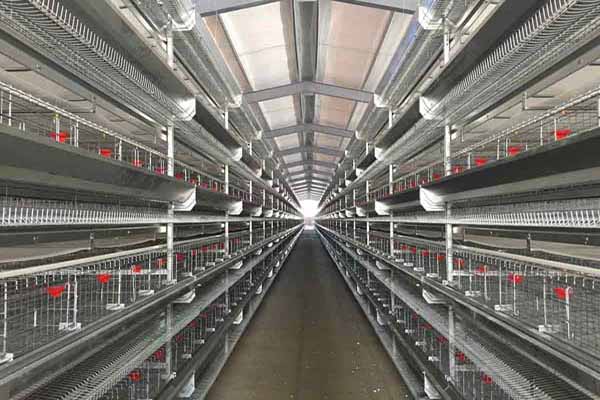High-Quality Poultry Cage Systems in Tanzania for 25,000 Birds: A Comprehensive Guide
Time : 2025-06-27
Introduction

The poultry industry in Tanzania has seen significant growth over the years, with a growing demand for high-quality poultry cage systems. As the number of birds in commercial farms increases, it is crucial to invest in systems that ensure the health, welfare, and productivity of the flock. This article provides a comprehensive guide to high-quality poultry cage systems in Tanzania, specifically designed for farms housing up to 25,000 birds.

Understanding Poultry Cage Systems
Poultry cage systems are designed to provide a controlled environment for birds, ensuring their health and comfort. These systems are crucial for efficient poultry farming, as they help in managing the flock size, feed, water, and waste management. The following are key components of a high-quality poultry cage system:
- Cage Design: The design of the cage should allow for proper air circulation, easy access for feeding and watering, and efficient waste management.
- Material: High-quality, durable materials such as steel or stainless steel are preferred for long-lasting performance.
- Capacity: The system should be designed to accommodate the specific needs of the birds, ensuring adequate space for movement and growth.
- Health and Welfare: The system should promote the health and welfare of the birds, minimizing the risk of disease and stress.
Key Considerations for 25,000-Bird Poultry Farms in Tanzania
When considering a poultry cage system for a farm with up to 25,000 birds, several factors should be taken into account:
- Space Utilization: Efficient use of space is essential to maximize productivity. The system should provide ample space for each bird, ensuring comfort and minimizing the risk of overcrowding.
- Climate Control: Tanzania experiences a range of climates, so the system should be designed to accommodate various weather conditions and temperature fluctuations.
- Feeding and Watering: The system should include automated feeding and watering mechanisms to ensure the birds receive a consistent supply of nutrients and water.
- Waste Management: Efficient waste management is crucial to maintain hygiene and prevent disease outbreaks. The system should facilitate easy removal and disposal of waste.
Top High-Quality Poultry Cage Systems in Tanzania
Several companies in Tanzania offer high-quality poultry cage systems suitable for farms with up to 25,000 birds. Here are some of the top options:
- Agricultural Equipment Tanzania (AET): AET provides a range of poultry cage systems, including multi-tiered systems that maximize space utilization and improve flock management.
- Poultry Farm Supplies Tanzania (PFST): PFST offers custom-designed poultry cage systems that can be tailored to the specific needs of the farm, ensuring optimal performance and productivity.
- Tanzania Poultry Equipment (TPE): TPE specializes in providing high-quality poultry cage systems with advanced features such as automated feeding and watering systems.
Benefits of High-Quality Poultry Cag e Systems
e Systems
Investing in high-quality poultry cage systems for a farm with up to 25,000 birds offers several benefits:
- Improved Productivity: Efficient management of the flock leads to increased productivity and better overall performance.
- Enhanced Health and Welfare: A well-designed system promotes the health and welfare of the birds, reducing the risk of disease and stress.
- Cost-Effectiveness: Long-lasting, high-quality systems can reduce maintenance and replacement costs in the long run.
- Environmental Sustainability: Efficient waste management and resource utilization contribute to environmental sustainability.
Conclusion
Investing in high-quality poultry cage systems is a crucial step for any farm in Tanzania aiming to house up to 25,000 birds. By considering the key components and top providers in the market, farmers can ensure optimal performance, health, and productivity of their flock. It is essential to choose a system that meets the specific needs of the farm, considering factors such as space utilization, climate control, feeding and watering, and waste management.











